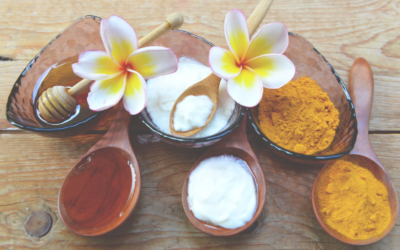Honey is one of the simplest foods to store at home, it is known that honey never goes bad. This is due to the low moisture content, anti-bacterial and acidic properties of honey. Even so, honey does become spoiled if you store it incorrectly.
When you purchase a bottle of honey, it is best to keep the honey in its original container that it came with. If the original container is leaking or damaged you can transfer the honey to a glass jar or food-safe plastic container. Do not allow the honey to have long contact with metal as honey is acidic and will react with metal by oxidation. Which means that it is best not to store honey in a metal container or leaving a metal spoon in the honey jar after using.
Simply store your honey in room temperature. Keep it in a kitchen cabinet that is away from direct sunlight while making sure you seal the container tightly. Do not try to refrigerate the honey as it is not needed and it will promote crystallisation of honey.
Avoid Heat When Storing Honey
Keep in mind that the most important factor that will destroy honey is heat. When you eat honey you want to eat it when it’s active with beneficial nutrients like enzymes, amino acids and antioxidants. High heat above 36 degrees Celsius will definitely affect the honey potency. The temperature in the beehive is of a maximum temperature of only 36 degrees Celsius, so it is not recommended that your honey is exposed to temperature above 36 degrees Celsius.
So what temperature can you store your honey? Can you put in the fridge or freezer? Honey is only affected by heat, coldness will not affect the potency of the honey and it will even help preserve the honey at its harvested stage. What do I mean by this? Honey is like wine, and long storage at room temperature can alter its chemical composition. For example, Manuka Honey requires aging to achieve its optimal state. But once it has reached its optimal state further aging can reduce its optimal potency.
The only concern of storing at low temperatures with raw honey is the hardening of honey which is a natural occurrence. Honey hardens like butter, hard but not entirely hard, it can still be scooped and spread on toast or taken directly. Some honey even at low temperature do not crystallize so it really depends on the honey itself.
For practicality reasons, you can simply store your honey at room temperature.
Avoid Moisture When Using Honey
The other factor that will affect honey is water, honey moisture content should not be above 18.5% otherwise it would start to ferment. Naturally occurring enzymes and yeast requires water and sugar to ferment. When these conditions are met, fermentation will start to occur. This is not a good thing as it alters the chemical composition of the honey from its natural state.
Of course, fermentation of honey can be done if your aim is to create mead, honey wine.
When handling honey, make sure to only use dry utensils. Remember to cap back your honey after use as there is also moisture in the air.
Avoid Direct Sunlight for Honey
If you’re honey is exposed to excessive sunlight it can cause the darkening of honey and at the same time cause the honey to lose its original smell and taste. UV often results in food degradation. Honey in ancient times are stored in clay pots which protects them from sunlight. Another reason is also because of the heat from sunlight which is not favorable to honey.
Honey Shelf Life
Honey in general has a very long shelf life that last from years to decades and even centuries. The difference in shelf life depends on how it is manufactured and also how it is stored.
Usually, when you buy a honey, it will state a best before date which is usually around 2 years. This is needed for retail reasons as once it reaches the consumers hands the storing and handling of honey if not proper can reduce its shelf life. However, do not worry, as long as you know that heat and moisture are honey’s worst enemy, your honey will last a long time.
How to Fix Crystallized Honey
Crystallisation occurs much quicker when raw honey is stored in cold temperatures. Which is why it is not recommended to store honey in the fridge. However, there may be those who like to eat crystallised honey for its texture. Some honey crystallises with very small crystals which makes it smooth like butter, our Autumn Flower Honey has this texture. Absolutely delicious!
If your honey is crystallised it does not mean that it is spoilt. Simply put the bottle of honey in warm water and the honey will slowly turn to liquid. As mentioned before, heat is honey’s worst enemy, make sure you use warm water of temperature not more than 36 Degree Celsius. Do not leave your honey in the warm water for too long as you may accidentally pasteurise your honey and kill the nutrients that are stored in the honey.
Extending Shelf Life of Honey
You can store your honey in the fridge or freezer which will stop all activity in the honey and help to lengthen the shelf life. Take note that honey expands when being stored in the freezer, therefore allow some space in the bottle when freezing. Once you are ready to use the honey, simply take it out and thaw it at room temperature.
Conclusion
Honey is very easy to store and hardly gets spoiled. You are also likely to use finish your honey much earlier than the best before date on the bottle. Even so, storing honey correctly is still important. Simply store your bottle of honey in a cabinet that is away from sunlight and direct heat, prevent moisture from entering the bottle by using dry utensils when scooping honey, and making sure that the lid is tightly sealed. There you have it, the correct way to store honey.




